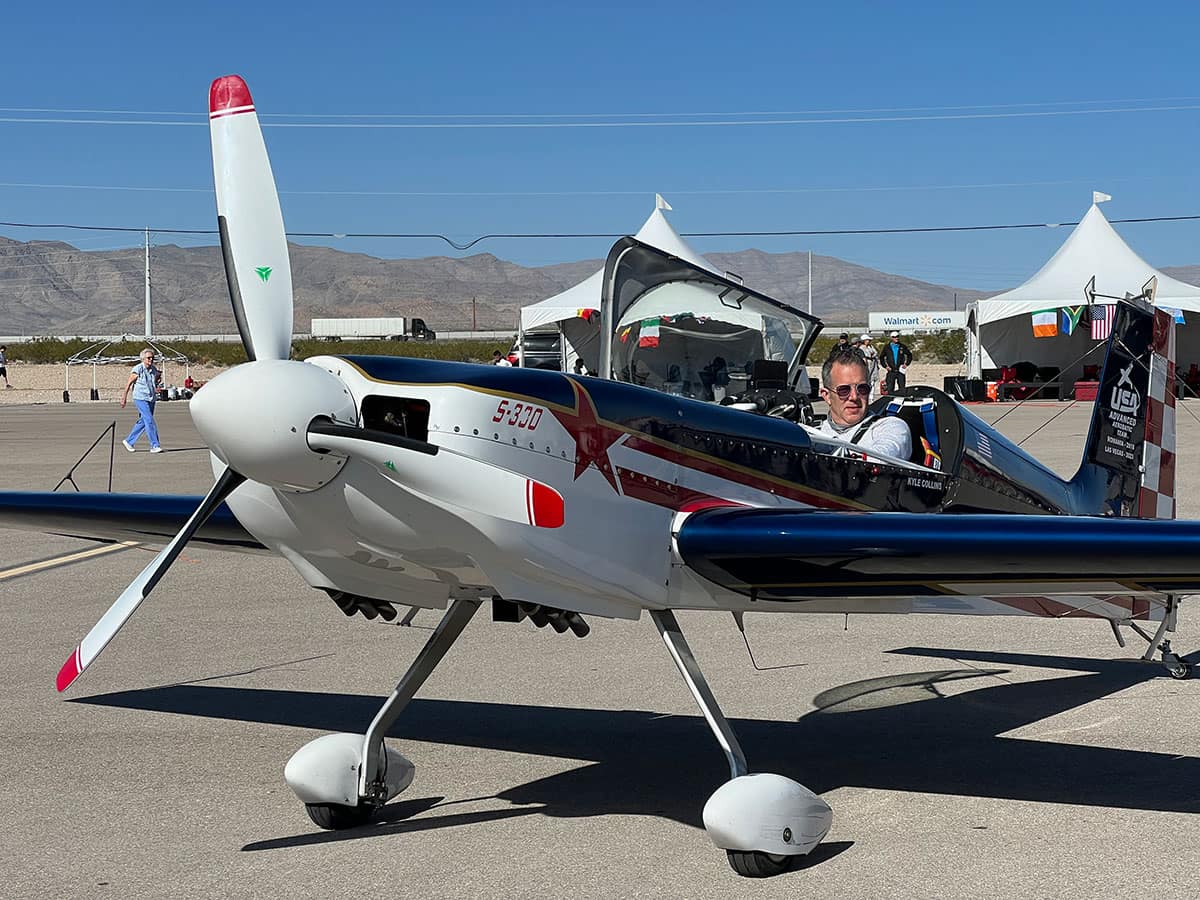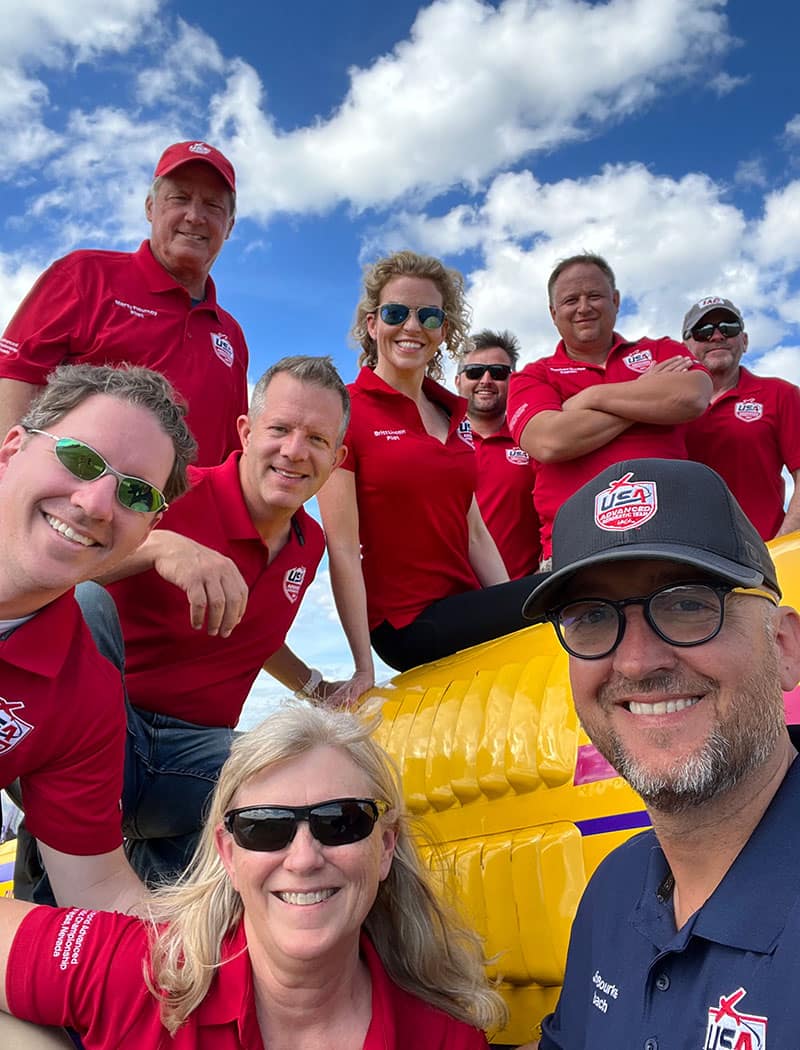Embry-Riddle Research Professor Flies High at International Aerobatics Contest


Collins poses with members of his U.S. Advanced Aerobatic Team. (Photo: Alice Johnson)
Dr. Kyle Collins, assistant professor of Aerospace Engineering and interim director of the Eagle Flight Research Center at Embry-Riddle Aeronautical University, earned second place in the United States, and eighth in the world, at the 2023 World Advanced Aerobatic Championships (WAAC), hosted last month in Jean, Nevada.
“I have a passion for being in the air and a need to take on new challenges,” he said, referring to his involvement in high-adrenaline competitive aerobatics.
At Embry-Riddle, Collins specializes in rotorcraft design optimization. Overseeing a team of faculty and students researching the new field of Urban Air Mobility, he has led significant advances in research and development as the principal investigator on a number of funded projects, most recently focusing on the certification, propulsion and flight control aspects of electric vertical takeoff and landing aircraft.
Collins said his aerobatic flying informs and enriches his research work.
“The lab that I direct at Embry-Riddle, the Eagle Flight Research Center, has research projects related to aircraft handling qualities, simplified vehicle operations, the control power envelope of an air vehicle, and ways to create flying ‘tests’ to determine how well an aircraft can meet the elements of a mission it must perform,” he said. “In a similar way to how car companies use race teams to inform design features of cars for you and me, I think that much can be learned from how aerobatic aircraft have evolved and are designed to yield precision flight in essentially any attitude.”
Collins’ first involvement in aviation began during his undergraduate years at Georgia Institute of Technology, when he started participating in four-way formation skydiving. Over the past 15 years, he has made more than 5,000 jumps. While earning graduate degrees at Georgia Tech, he also earned his private pilot’s license, instrument rating and commercial pilot’s license.
After earning his Ph.D., and while working as a lead research engineer at Georgia Tech’s Aerospace Systems Design Laboratory, he was hooked by aerobatics, purchasing a Pitts S-1T and working his way through the International Aerobatics Club’s Sportsman, Intermediate and Advanced competition categories. In January 2022, Collins bought a Panzl S-330 and, later that year, made the U.S. Team with seven other pilots. Throughout 2023, Kyle trained with those team members in Florida, Tennessee and Nevada, in preparation for the WAAC.
Collins’ refers to last month’s event as “our time in Nevada, where the horizon was obscured by mountains, winds caused delays and some of the best-advanced pilots in the world kept searching for the perfect flight.”
Posted In: Aviation

 Michaela Jarvis
Michaela Jarvis